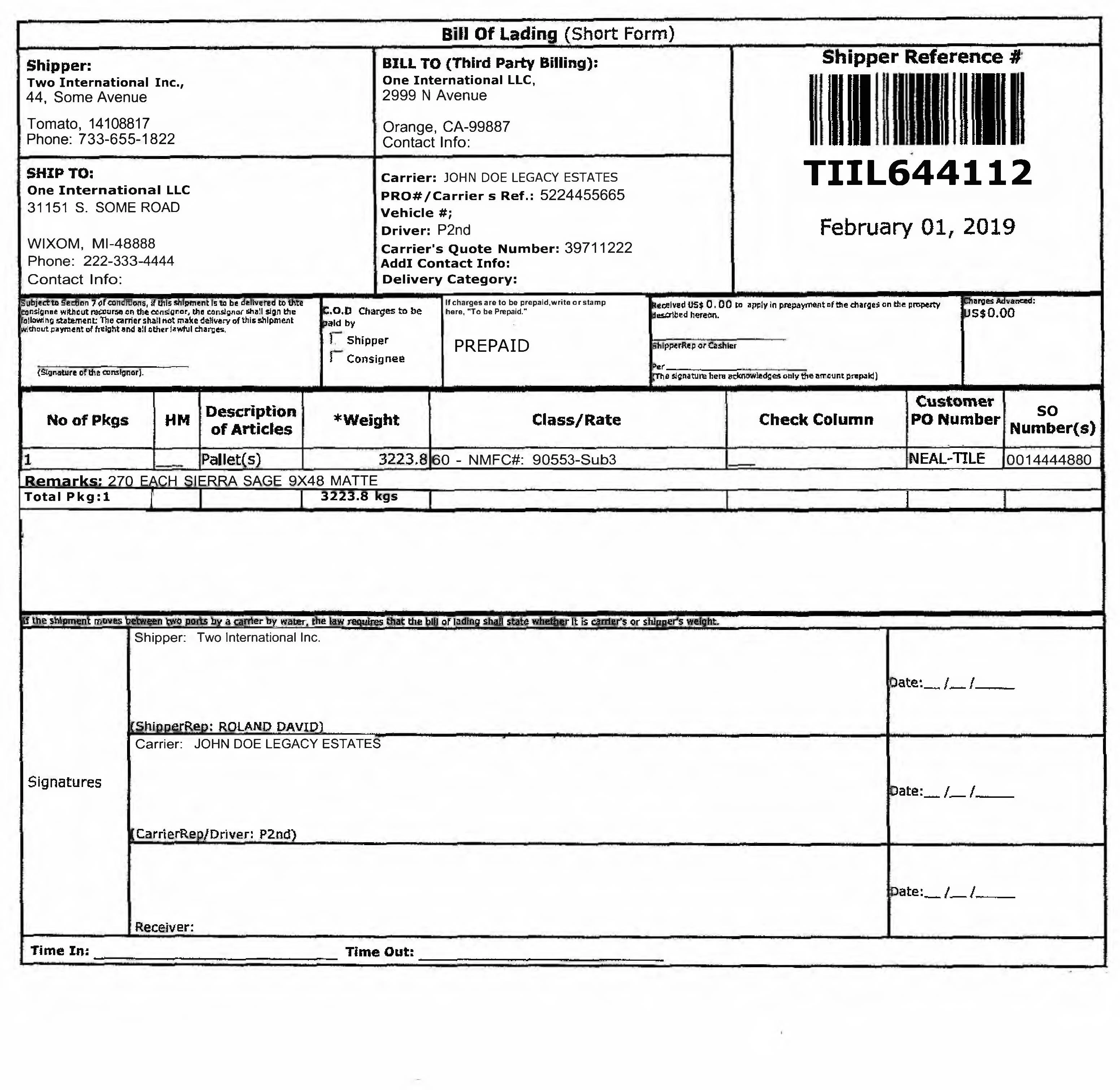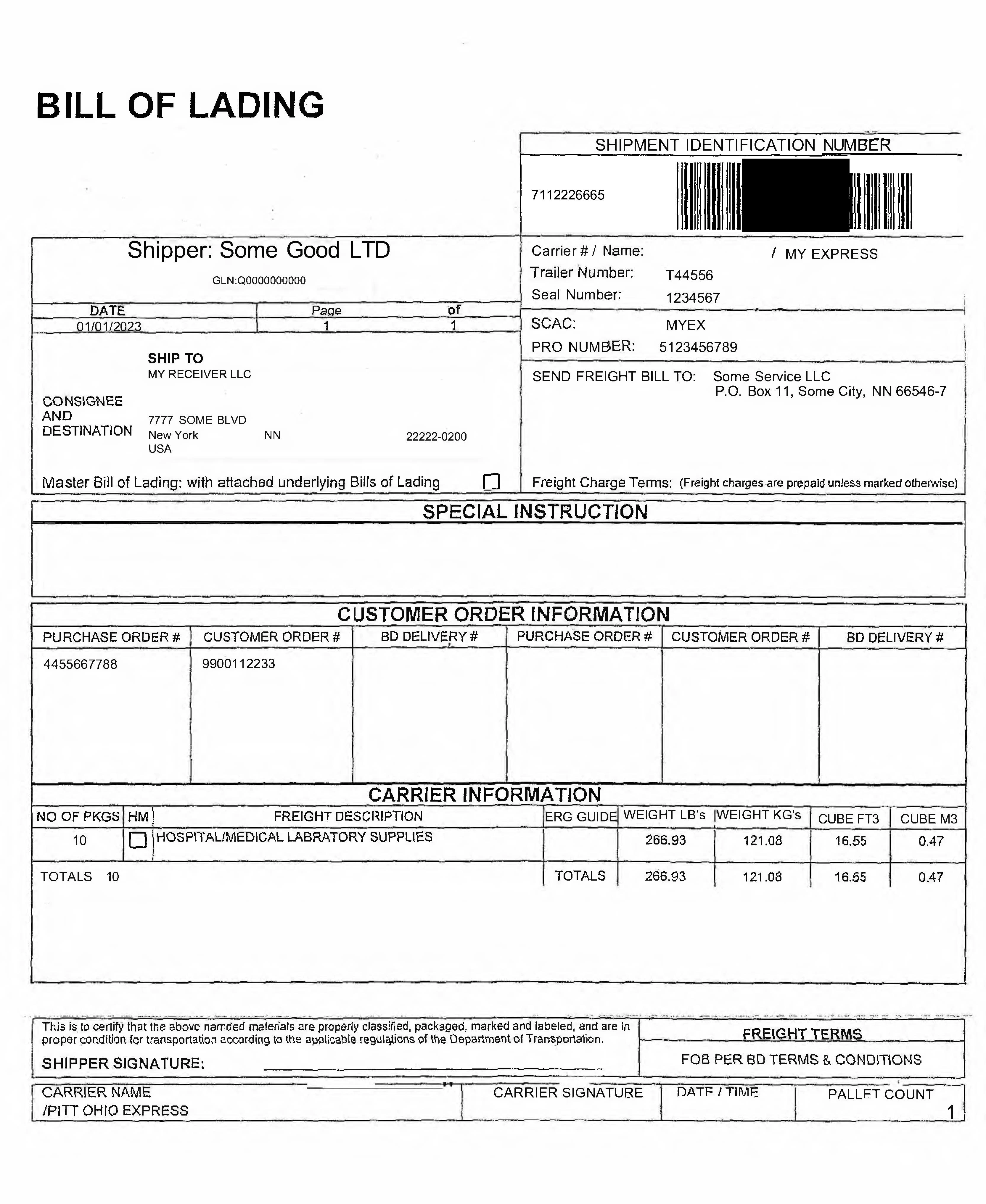The Bill of Lading skill is designed for extracting data from bills of lading. A bill of lading is a legal document used in both national and international trade. Bills of lading are issued to the shipper by the carrier as confirmation that the goods have been received and are as described, with the carrier undertaking to deliver it to the consignee in appropriate condition. This document should accompany the shipped goods along their entire freight route, regardless of the transport used.
A bill of lading contains all shipping-related information about the following: shipper, consignee, goods being shipped (weight, size, type, etc.), origin and destination of shipments, as well as shipping agreement terms. Various bill of lading types are used in international trade depending on the following: consignee type (named, order, bearer), shipping means (liner, charter, straight, through), additional descriptions of the goods (clean, dirty), and shipping period (on-board, received-for-shipment).
The Bill of Lading skill is a production skill. It has been fully trained on a large document set and provides high accuracy of data identification and extraction. The skill is ready to be used in production and does not require further training on your specific documents.
With a low-code / no-code library of pre-built freight and shipping documents, Vantage empowers citizen developers within shippers and logistics providers of any size to meet their most difficult document processing challenges using their operational knowledge.
This skill can be used to automate the processing of shipping documents and significantly reduce the time needed to process and validate these complex documents in a very time-sensitive industry. Automation of shipping documentation processing reduces manual labor, human errors, unnecessary delays and related cost and is a competitive advantage for logistics providers.
Benefits
- Vantage document skills are extraction models, based on ABBYY's purpose-built AI, designed and trained to extract key data from business documents.
- The model automatically detects key fields on BoL documents and extracts relevant data (BoL number and date, PO number, shipper, carrier, consignee and bill to addresses, shipment ID and date, terms, port of entry/exit, hazardous material etc.). Line items have not been trained yet. For a full list of extracted fields, please see the skill documentation.
- Detects shipper, consignee, ship to addresses automatically. Database look-up not available.
- Includes validation and data normalization rules. Further business rules can be added as required.
- Can be augmented by human-in-the-loop review and verification based on accuracy thresholds, missing or incorrect information.
- The model can be further improved through continuous learning, based on feedback during the manual review phase.
- The skill complements other pre-trained transportation and logistics skills from ABBYY including bill of lading, commercial invoices, custom declarations, and several more.





